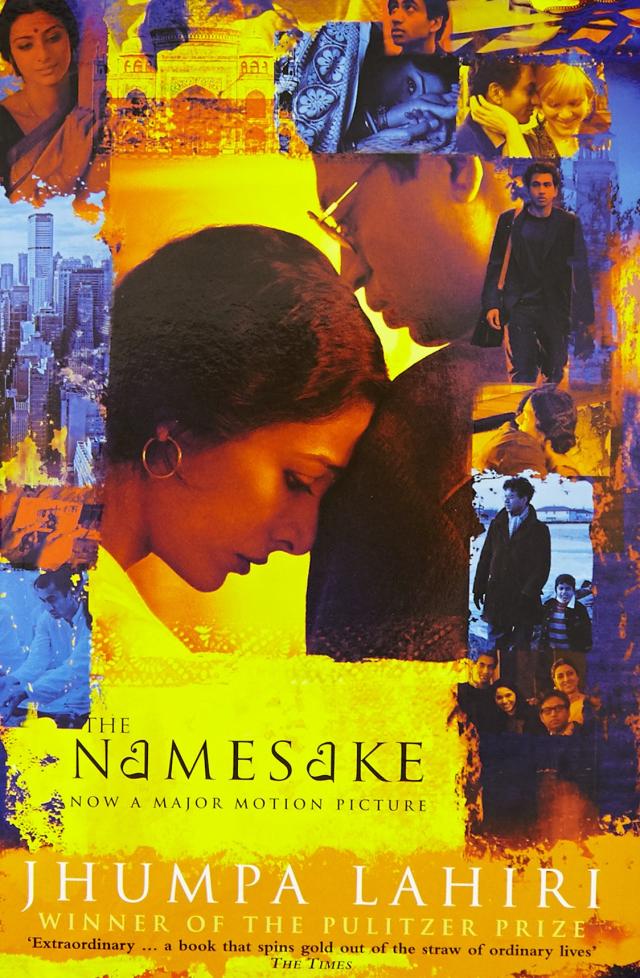
The Namesake
The Namesake is Pulitzer Prize-winning author Jhumpa Lahiri’s debut novel. It tells the story of the Ganguli family: Ashoke and Ashima, originally from Bengal, migrate to the North-eastern United States in the 1960s. They have two children there, and the novel follows, for the most part, the experiences of their firstborn son – the namesake of the title – Gogol. It is a novel about living in between places, cultures and assigned identities, and about the quiet comings and goings that make up a life. Lahiri is a gifted writer, and somehow especially talented in drawing out the way mundane details and accident can mark the most significant moments.
There is a lot to love about the scenes set in India: the Calcutta in which Ashima grew up, the tenderly detailed portrayal of her artist father, by all means a marginal character. Similarly, Ashoke’s grandfather, the lover of Russian literature, who passes on to his grandson the passion for Nikolai Gogol that will give his great-grandson his name. And at the same time, the frustration of the younger generation, Gogol and his sister Sonya – American in so many ways – at the strangeness of this foreign place they are forced to visit is related with complete empathy.
Lahiri displays a wonderful capacity to conjure just those happenings that will work as the perfect metaphor for something larger. The case in point is Gogol’s naming. In accordance with Bengali tradition, he was to have a pet name – the name he is called from his earliest days, the name reserved for those closest to him – and a good name – the name for his official existence in the world. His maternal grandmother was to pick his good name, but the letter she sends in the post is lost somewhere between India and the US, and American bureaucrats prove repeatedly unable or unwilling to understand that the boy should have two names. So Gogol comes to be called Gogol officially, a name he loathes and which his parents never intended to see in print. In this way, Lahiri begins to intimate what is untranslatable and what is lost in between worlds.
It’s not a flashy story, and the lives it recounts are not characterised by anything more particularly spectacular than most. Maybe it’s precisely this, and the novel’s ability to bring the sighs and whispers of relatively normal lives – albeit ones marked by life-changing migrations – to the reader in such stark eloquence that made me enjoy this novel as much as I did. It’s not fast-paced or buzzing with drama; it’s a wonderfully slow journey that left me caring deeply for its characters.
Order the book here and support us! The work behind poco.lit. is done by us – Anna und Lucy. If you’d like to order this book and want to support us at the same time, you can do so from here and we will get a small commission – but the price you pay will be unaffected.
